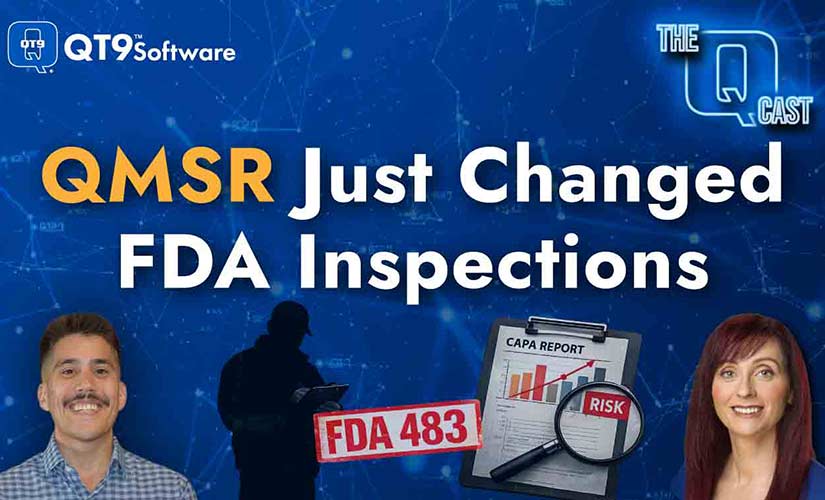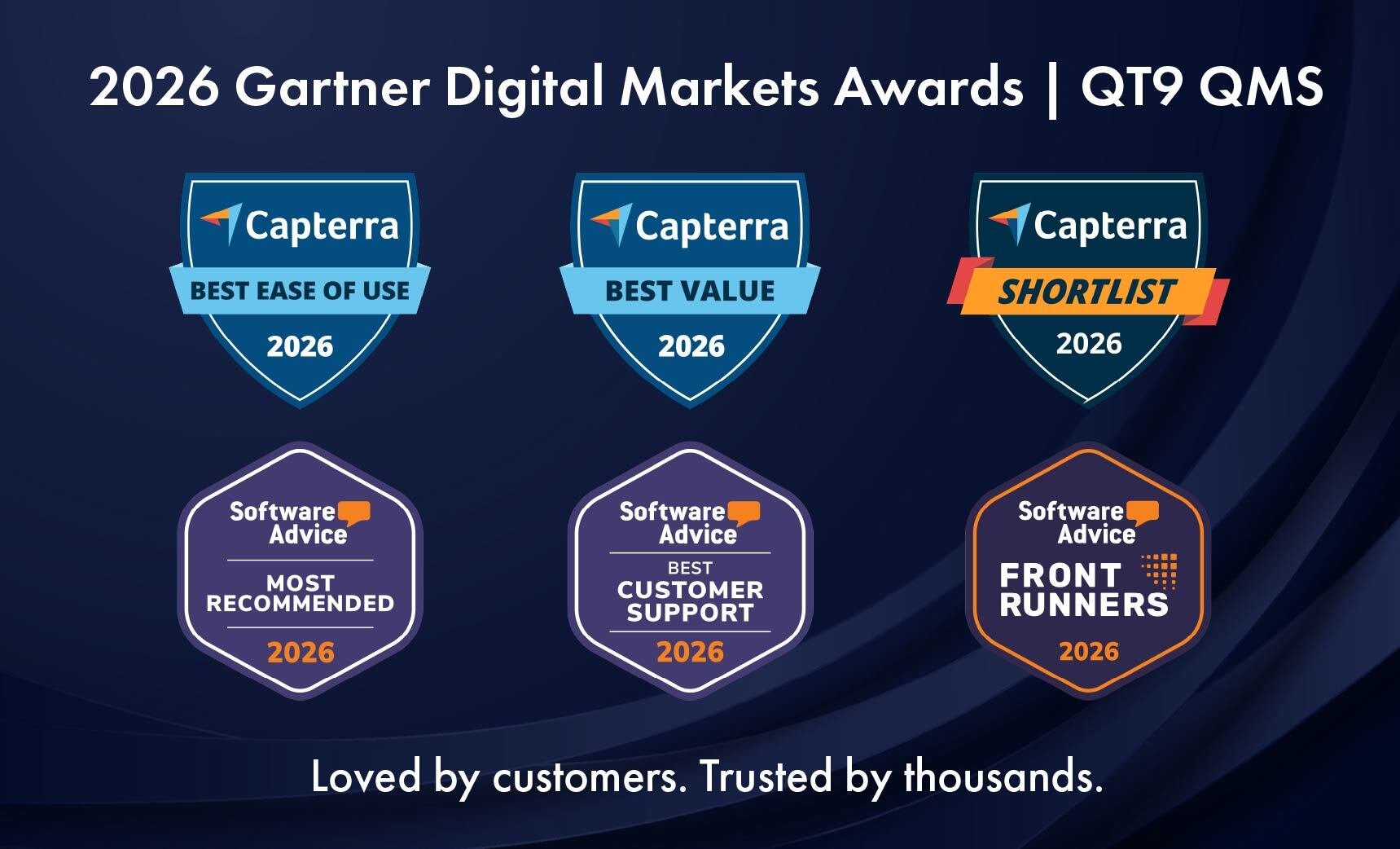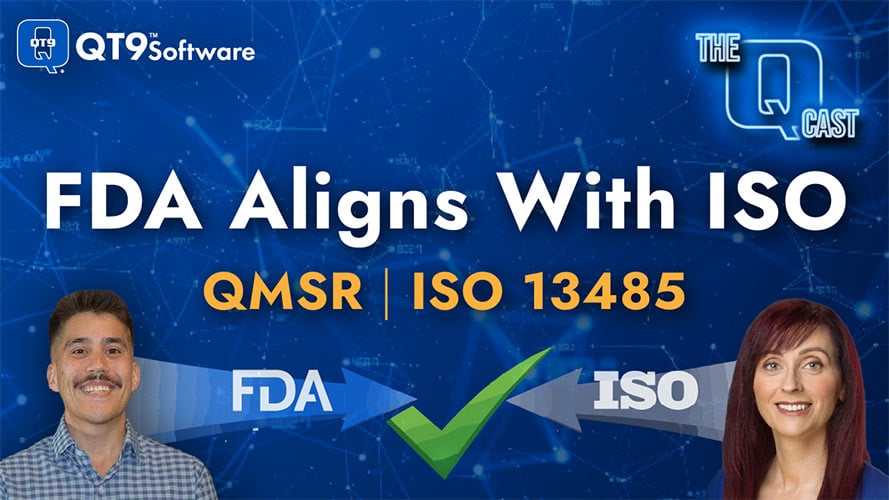Keep Calibrations on Track
Automate equipment calibration with audit-ready, paperless compliance tools built into QT9 QMS.
Automate Due Dates
Never miss a calibration with automated scheduling.
Centralize Records
Keep all calibration data and certificates in one secure place.
Pass Audits Easily
Instantly access calibration logs for inspections and audits.
Track Out-of-Tolerances
Log and review equipment that fails to meet required specs.
Link to Equipment
Connect calibration data directly to equipment records in QT9.
Eliminate Spreadsheets
Replace manual tracking with a digital, paperless system.
What is calibration management software?
Calibration management is the process of scheduling, tracking and documenting calibration activities for measurement tools and equipment. It plays a critical role in quality control by ensuring instruments remain accurate, reliable and compliant with standards like ISO 9001, FDA and GMP.
QT9’s Calibration Module streamlines how companies manage calibration records. With automated scheduling, electronic certificates and fail/pass tracking, it eliminates spreadsheets and human error. Fully integrated into the QT9 QMS, it improves traceability, audit readiness and overall equipment reliability—ensuring compliance is easy and consistent.
Interactive Video Demo

QT9 QMS Calibration Management Demo
What is calibration management software?
Calibration management is the process of scheduling, tracking and documenting calibration activities for measurement tools and equipment. It plays a critical role in quality control by ensuring instruments remain accurate, reliable and compliant with standards like ISO 9001, FDA and GMP.
QT9’s Calibration Module streamlines how companies manage calibration records. With automated scheduling, electronic certificates and fail/pass tracking, it eliminates spreadsheets and human error. Fully integrated into the QT9 QMS, it improves traceability, audit readiness and overall equipment reliability—ensuring compliance is easy and consistent.
All-in-one solution for better calibration records
Free up time with calibration tools built in to QT9 QMS.
Calibration Dashboard
Get a quick view of gauges due for calibration by 10, 30, 45, 60 and 120 days out.
Calibration Scheduling
Easily create a calibration schedule for all measurable devices.
Email Alerts
Alerts and reminders are automatically sent when gauges are due for calibration.
Gauge-Type Scheduling
Schedule gauge calibrations by gauge type, date, location, individual gauge or more.
Calibration History
View full calibration history per gauge.
Calibration Certificates
Attach third-party calibration certificates to any calibration record.
Celebrated by Experts. Loved by Customers.
QT9 QMS is a leader in Calibration Management Software on Capterra and Software Advice.
Get end-to-end quality management
FAQ: Calibrations
In the quality management arena, calibration refers to the comparison of an instrument or machine that is under evaluation to a known standard for that instrument or machine. The goal is to determine and report on the level of error, if any, reflected by the comparison and to determine whether an adjustment, repair or other action is warranted.
Many regulatory standards, including ISO 9001 and ISO 13485, require a formal, documented, traceable calibration system used to maintain the accuracy of instruments or machinery. Beyond regulatory standards, ensuring that your equipment is properly calibrated verifies the accuracy of your inputs and attests to the overall quality of the products or services you provide.
If you’re in an industry such as pharmaceutical, medical device or aerospace manufacturing, improper equipment calibration could ultimately have life-altering consequences. Proper equipment calibration is incredibly important and regulations are more exacting where end-user safety is a factor.
Calibration software allows you to digitally manage all calibration processes necessary for your equipment. With calibration software, you can centralize calibration records, such as instructions and policies; create a calibration schedule and get reminders when a calibration is due; store and archive calibration data and easily access it when needed; and integrate supplier or third-party records and certificates.
Beyond automating and centralizing calibration processes, calibration software offers other benefits, such as:
- Eliminating errors
- Minimizing risk
- Creating efficiencies and maximizing output, ultimately boosting profits
- Simplifying report generation
- Ensuring regulatory compliance
- Improving equipment longevity
QT9 QMS has 25+ interconnected modules that come standard, including a calibration module that connects with other key applications, such as audits, risk management, deviations and supplier management. It’s cloud-based platform allows you to keep track of calibration processes and synchronize records with anyone, anywhere.
QT9’s QMS software is a highly rated, affordable, easy-to-use quality management system that excels at all of the processes that go into providing high-quality goods and services that are FDA and ISO compliant.
Quality management resources

FDA QMSR Part 2: Preparing for FDA Inspections

QT9 QMS Earns 2026 Top Honors from Capterra and Software Advice

FDA QMSR Compliance Calls for a New Mindset
Try QT9 for free
Ready to simplify your quality processes? No credit card needed.